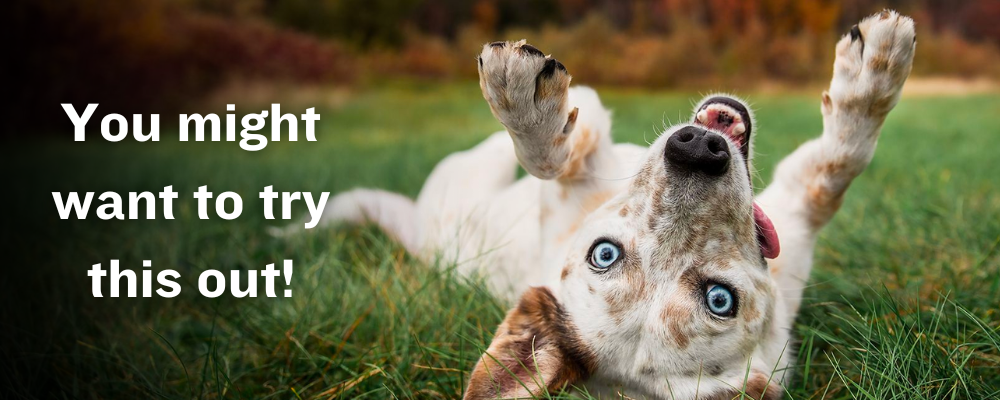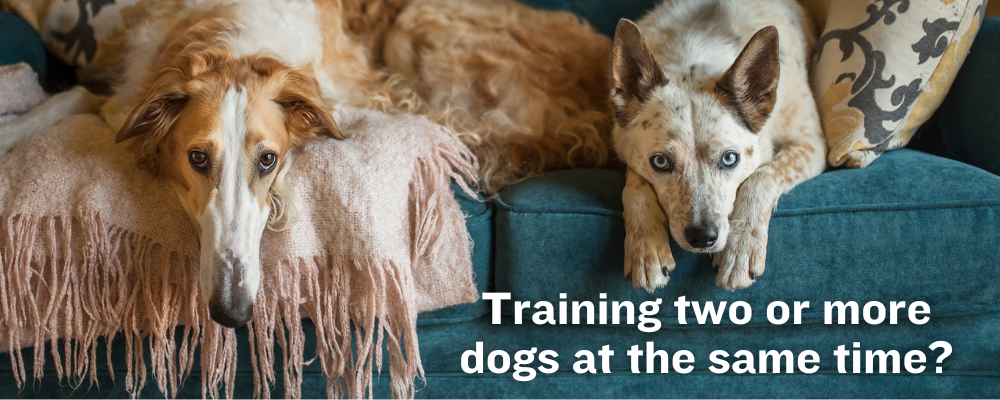Miniature German Shepherds are intentionally mixed dog breeds that result in a mini version of the loyal, workaholic German Shepherd. These dogs are smaller than the standard GSDs but retain most of their nature and appearance. So it’s vital to research them thoroughly if you are considering adding one to your family.
Miniature German Shepherds are a mix of a standard German Shepherd and a smaller dog like a Poodle or Collie. The result is a smaller dog that mostly acts and looks like its German Shepherd parent, although it may inherit traits from the other breed.
Miniature German Shepherds have the famous GSD intelligence and loyalty and can adapt to smaller living spaces due to their size. In this article, you’ll see whether the breed is suitable for you based on its temperament, maintenance, and health.
You may also like: German Shepherd With Dwarfism: Is it Good or Bad?
What is the miniature German Shepherd?
A miniature German Shepherd is a designer dog from crossbreeding a standard GSD female with a smaller breed like a Poodle. The result is a smaller dog that shares many physical and personality attributes with the GSD but still has certain attributes from the other breed.
Miniature German Shepherds are distinctive from their purebred GSD dwarf counterparts. Whereas miniature German Shepherds are intentionally and safely bred to have a small physique, dwarfism is a genetic disorder. Unscrupulous breeders may attempt to market a purebred miniature GSD, but those are dwarf dogs with a myriad of health problems and a reduced lifespan.
A good example of a miniature German Shepherd is this German Shepherd Corgi mix:
What are the most common types of miniature German Shepherds?
Miniature or mini German Shepherds can come from mixing most small to medium breeds with a female GSD. The resulting mixed puppy isn’t a carbon copy of the German Shepherd because it can inherit traits from both species. The female of the smaller breed must never be used as their uterus is too small to carry the puppy.
The common types are:
- Corman shepherd (German Shepherd x Corgi mix)
- Shepadoodle (German Shepherd x Poodle mix)
- Shollie (German Shepherd x Collie mix)
- Chow Shepherd (German Shepherd x Chow Chow mix)
- Dachshund Shepherd (German Shepherd x Dachshund mix)
- Beagle Shepherd (German Shepherd x Beagle mix)
Myths and misconceptions about the miniature German Shepherd
Mini GSDs are purebred
True miniature German Shepherds cannot be purebred but are mixed dogs. Purebred mini GSDs suffer from pituitary dwarfism resulting in a smaller stature and other health issues like chronic renal failure and heart issues. To get a smaller size, GSDs have to be crossed with small breeds.
They don’t need exercise
Studies show that some owners falsely believe that smaller dogs don’t need exercise resulting in health issues like obesity (Source: Maintenance and Energy Requirements of Miniature Colony Dogs). Miniature German Shepherds still need quite a bit of exercise despite their small size.
They’re the runt of the litter
A true mini GSD’s size is due to crossbreeding instead of being the runt. While some backyard breeders breed runts to get mini GSDs, the result is unhealthy pups with compromised genes.
Size and appearance: What does a Mini German Shepherd look like?
The appearance of miniature German Shepherds is widely varied because they can inherit physical attributes from either parent. They are smaller and lighter, and the coat, size, and color vary based on the smaller breed’s appearance.
| Appearance | Height | Weight | Coat | Color |
| Standard GSD | 22 to 24 inches female24 to 26 inches male | 50 to 70 poundsFemale65 to 90 pounds male | Straight, harsh double coat | Black and tan, black, white, sable, grey |
| Miniature GSD | 15 to 20 inches | 40 to 50 pounds | Can have straight, wavy, long, or medium hair | GSD markings are most common but can have other breed’s color |
General care guide of a miniature German Shepherd
Miniature GSDs are easier to manage than purebred ones due to their small size and minimal exercise requirements, but they still require care.
| Hypoallergenic | No |
| Shedding | Moderate. Heavier during spring and autumn |
| Exercise | Minimal. short daily walk |
| Apartment friendly | Yes |
| Grooming | Moderate |
| Temperament | Loyal, affectionate, protective |
| Trainability | Highly trainable |
What is the temperament of a mini GSD?
Miniature German Shepherds are highly affectionate, intelligent, and protective, with unfaltering loyalty to their owners. Mini GSDs are eager to please and obedient and make excellent family pets as they’re good with kids. They are people dogs who thrive off human love and can get destructive when left alone for a long time.
These calm dogs can get a bit stubborn if understimulated because their intelligent minds need to stay occupied. Mini German Shepherds can have varying temperaments depending on the parent breed, but most retain the working, loyal behaviors that make GSDs. Proper training beats genetics for a well-natured dog.
Training & socialization requirements of a Mini Shepherd
These intelligent hybrids are easy to train, grasping and retaining new commands after a couple of repeats. Their strong urge to please increases ease of trainability, although it won’t be a walk down the park as they can choose to be stubborn. Early socialization with various people and animals ensures a well-adjusted dog.
Potential health issues of mini German Shepherds
As a mixed breed, miniature German Shepherds are prone to health issues in the parent breeds (Source: American Medical Veterinary Association). Reputable breeders will perform hip, elbow, degenerative myelopathy (DM), and eye testing to avoid the likelihood of the following conditions:
- Hip dysplasia
- Elbow dysplasia
- Degenerative myelopathy (DM)
- Back issues like Intervertebral Disc Disease (IVDD)
- Canine hypothyroidism
- Bloat (GDV) due to the deep chest
- Dental issues common among smaller parent breeds
- Eye conditions
- Osteoarthritis
Mixed breeds are generally less susceptible to health issues due to hybrid vigor. However, parent breeds must take genetic tests to increase their chances of a healthier life.
The average lifespan of a miniature German Shepherd
Miniature German Shepherds are generally healthy and typically live for 9 to 13 years. A proper diet, exercise, and regular medical checkups increase the chances of these dogs living long and healthily. Miniature Shepherds inherit smaller breeds’ tendency to live longer and benefit from hybrid vigor.
Nutritional needs of mini German Shepherd
It’s best to consult your vet when choosing the right diet for your mini German Shepherd. The vet will decide if your dog has any underlying medical issues like endocrine or renal problems that require a special diet. Generally, a diet high in lean protein, like poultry, is the best for nutrients and digestibility.
It’s advisable to feed your mini GSD twice instead of one bulky meal because they’re prone to bloat (GDV). Mini German Shepherds need less calorie-dense food for small or medium dogs, depending on their size and weight.
Don’t supplement your dog’s diet with minerals and vitamins unless the vet instructs, as that would lead to health complications.
How much exercise does a mini GSD need?
Mini GSDs need at least 30 minutes of daily exercise in the form of walking to stay healthy. They need physical and mental exercise to avoid health issues like obesity and unwanted chewing and barking. Mini GSDs can pile up on weight, so adhering to a daily activity routine keeps them in check.
Avoid excessive jumping, especially for short-legged GSD mixes with Corgi or Dachshunds because they’re prone to back and leg issues. Puzzles and other interactive toys like KONGs keep your intelligent miniature GSD mentally occupied, reducing chances of boredom.
Grooming needs for miniature German Shepherds
Miniature German Shepherds have manageable grooming needs to keep them neat and disease-free. These needs include:
- Coat brushing at least twice a week to reduce matting and tangles and distribute natural oils
- Daily brushing when the dog “blows the coat” during spring and fall
- Monthly baths to remove dirt and grime. You can bathe more frequently if the dog is muddy or smelly
- Teeth brushing at least 2 to 3 times a week to remove plaque, preventing canine periodontitis
- Clip nails at least monthly or when you can hear them when the dog walks
What are the ideal homes for miniature German Shepherds?
- Non-allergenic households
As non-hypoallergenic dogs, mini GSDs trigger reactions and are unsuitable for people with allergies. Even if the GSD is bred with a hypoallergic breed like the Poodle, the chances of a hypoallergic puppy are slim.
- Large households
This family-friendly breed is good with kids and does well with the constant company of a large household.
- Multiple-pet households
Well-socialized mini German Shepherds can live well with other dogs and animals. Under-socialized GSDs can take to excessive barking and some unwanted behaviors.
- Smaller spaces
The small size allows mini GSDs to adapt to apartment living with proper exercise, although a yard is a bonus.
Where can I find a miniature German Shepherd?
You can buy a miniature German Shepherd from a reputable breeder or adopt one from a local shelter. Ensure the breeder you’re buying from presents genetic tests for your puppy’s parent breeds to reduce the chances of buying an unhealthy puppy.
Don’t buy a “purebred mini GSD” because they don’t exist, and those that do are dwarf dogs. Getting your mini dog from a reputable breeder reduces the chances of bad temperament. Avoid getting dogs from online ads such as on craigslist because you can encounter scams and sick puppies.
How much does a miniature German Shepherd cost?
A miniature GSD costs about $800 to $1500, depending on the credibility and location of the breeder. Expect to pay about $100 to $300 to adopt a dog from a shelter. Dogs from reputable breeders are a bit pricy due to the tests on the parents. Therefore, be wary if the deal is too good.
Conclusion
Miniature German Shepherds are a mix between a female GSD and a smaller breed like the Poodle or Corgi. They are typically healthy, especially if appropriate genetic tests are taken on the parents prior. They are different from small purebred GSDs, which are tiny because of a genetic disorder, dwarfism.
Read more: German Shepherd With Dwarfism: Is it Good or Bad?



